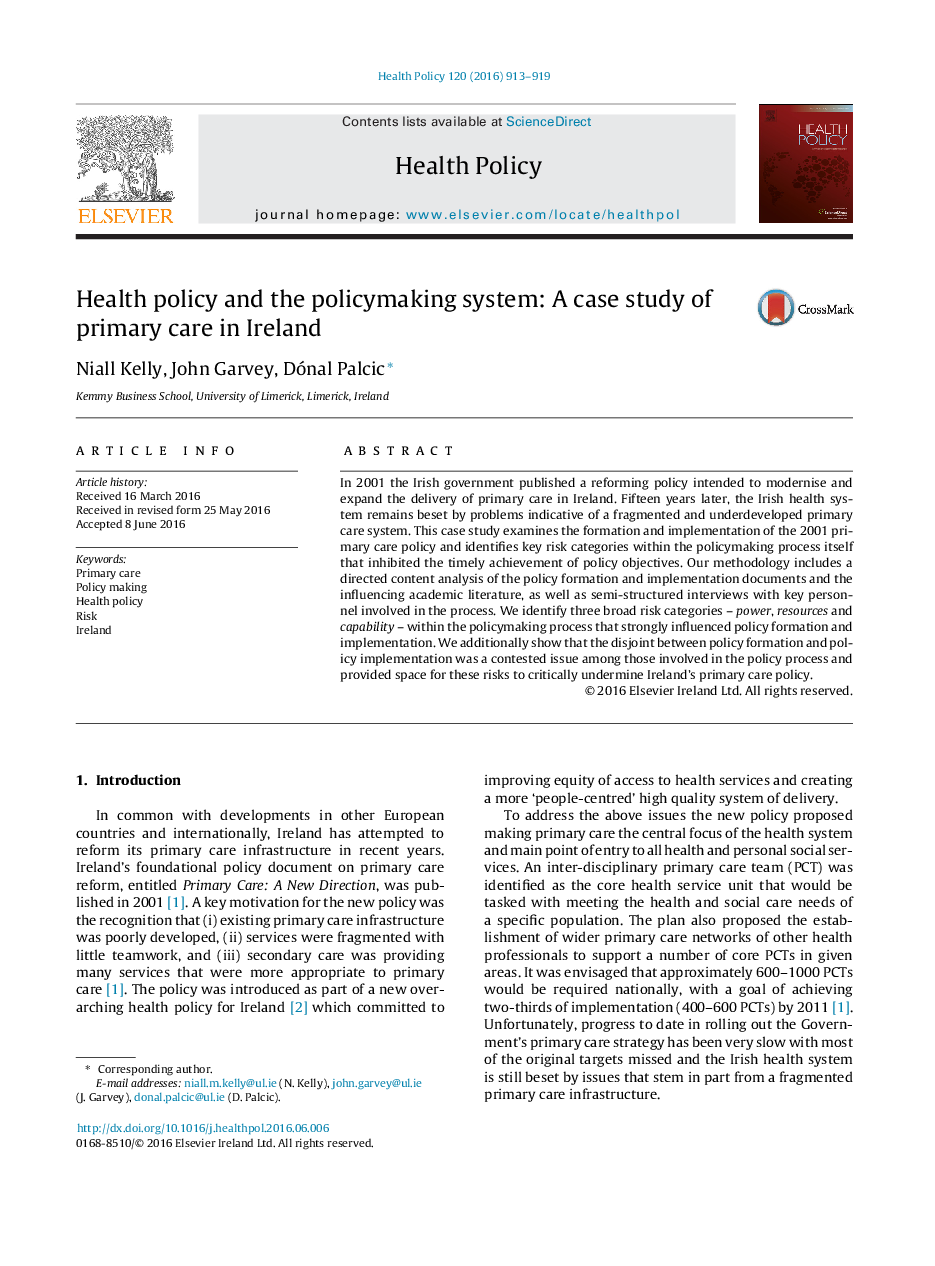| Article ID | Journal | Published Year | Pages | File Type |
|---|---|---|---|---|
| 4197747 | Health Policy | 2016 | 7 Pages |
•We examine the formation and implementation of Ireland's 2001 primary care policy.•We focus on how risk was addressed within policymaking process.•We utilise directed content analysis of policy documentation and semi-structured interviews.•We identify key risk categories within policymaking process that hindered implementation.•We highlight the need for stronger evaluation of risks when forming policy.
In 2001 the Irish government published a reforming policy intended to modernise and expand the delivery of primary care in Ireland. Fifteen years later, the Irish health system remains beset by problems indicative of a fragmented and underdeveloped primary care system. This case study examines the formation and implementation of the 2001 primary care policy and identifies key risk categories within the policymaking process itself that inhibited the timely achievement of policy objectives. Our methodology includes a directed content analysis of the policy formation and implementation documents and the influencing academic literature, as well as semi-structured interviews with key personnel involved in the process. We identify three broad risk categories – power, resources and capability – within the policymaking process that strongly influenced policy formation and implementation. We additionally show that the disjoint between policy formation and policy implementation was a contested issue among those involved in the policy process and provided space for these risks to critically undermine Ireland's primary care policy.
